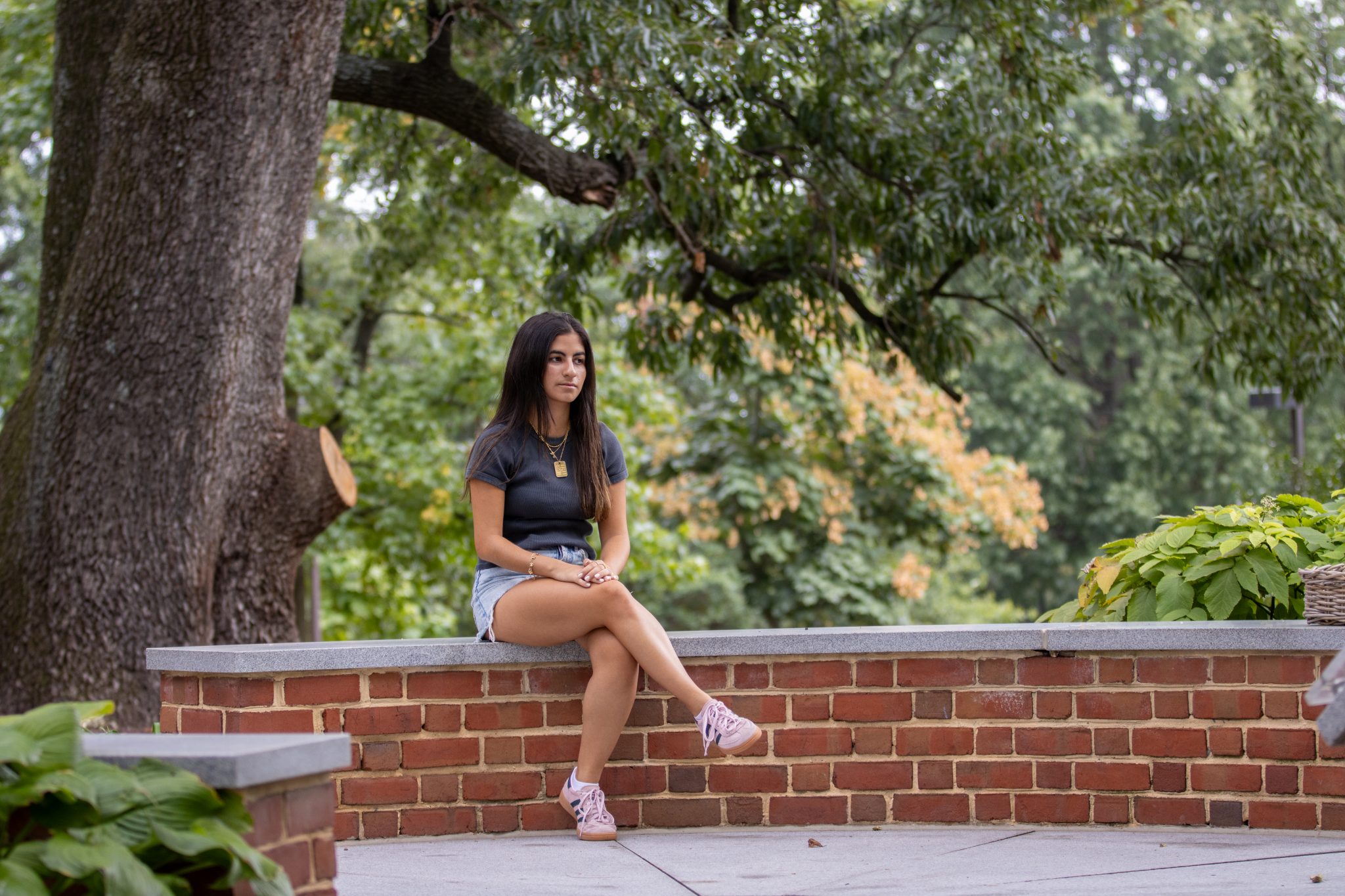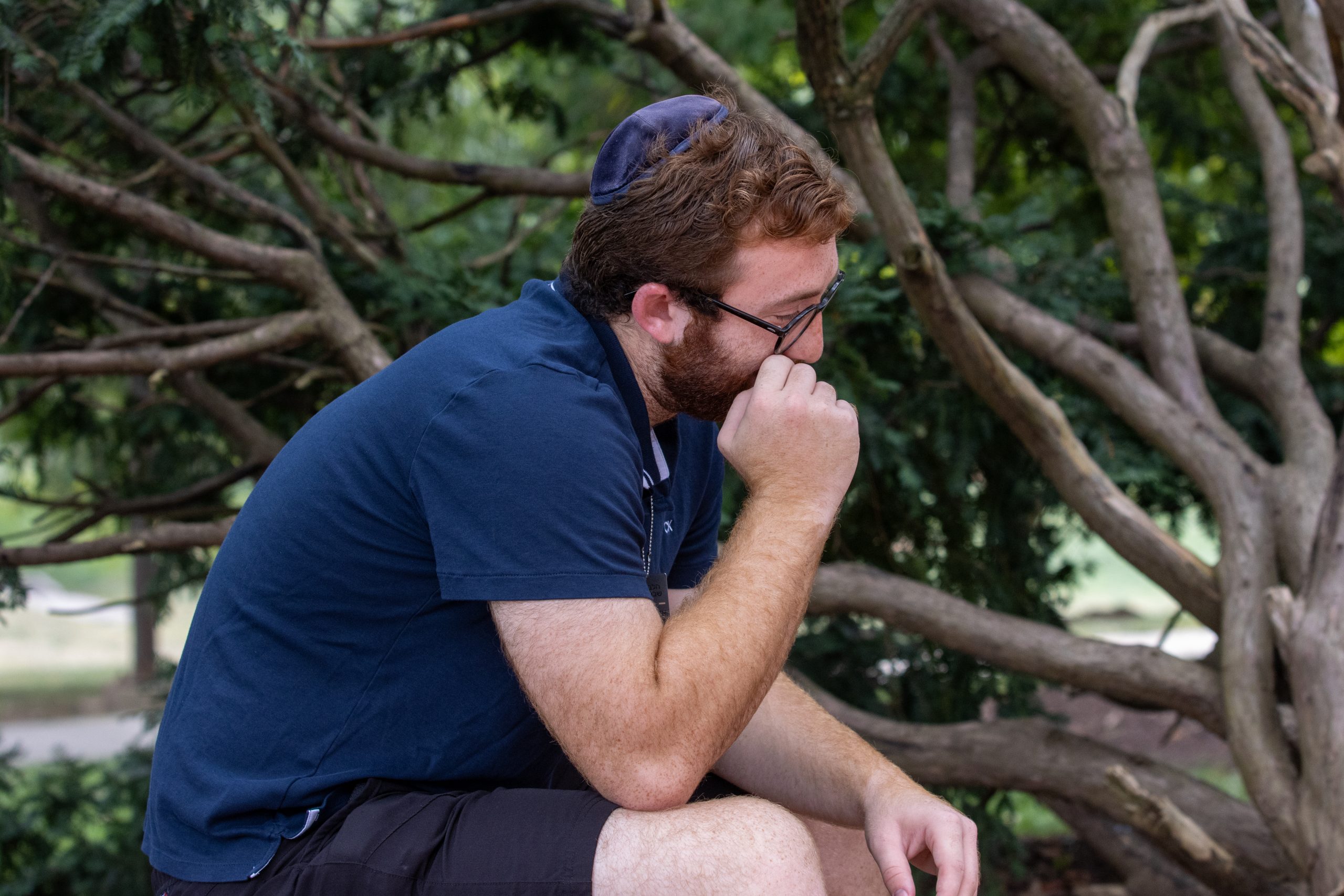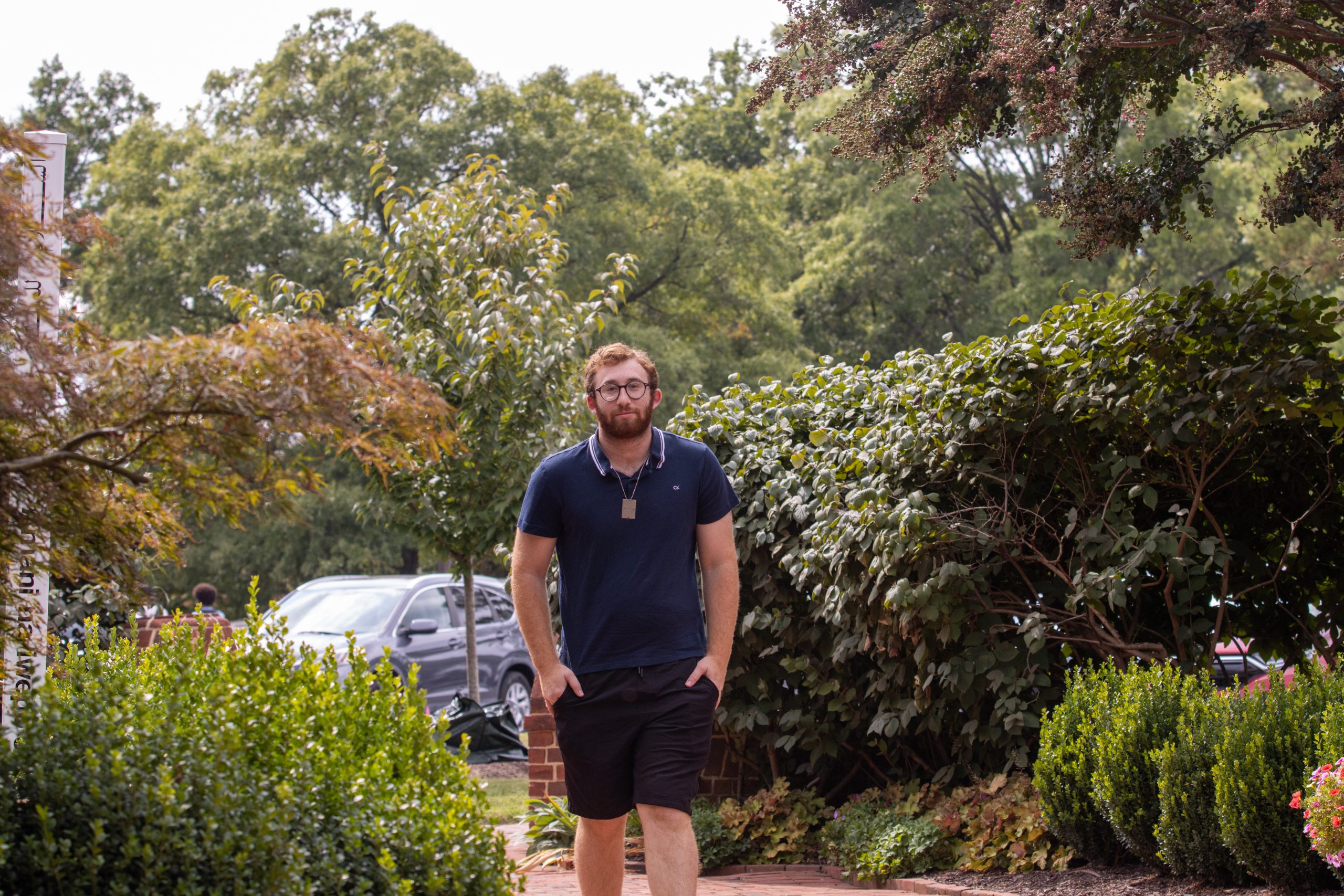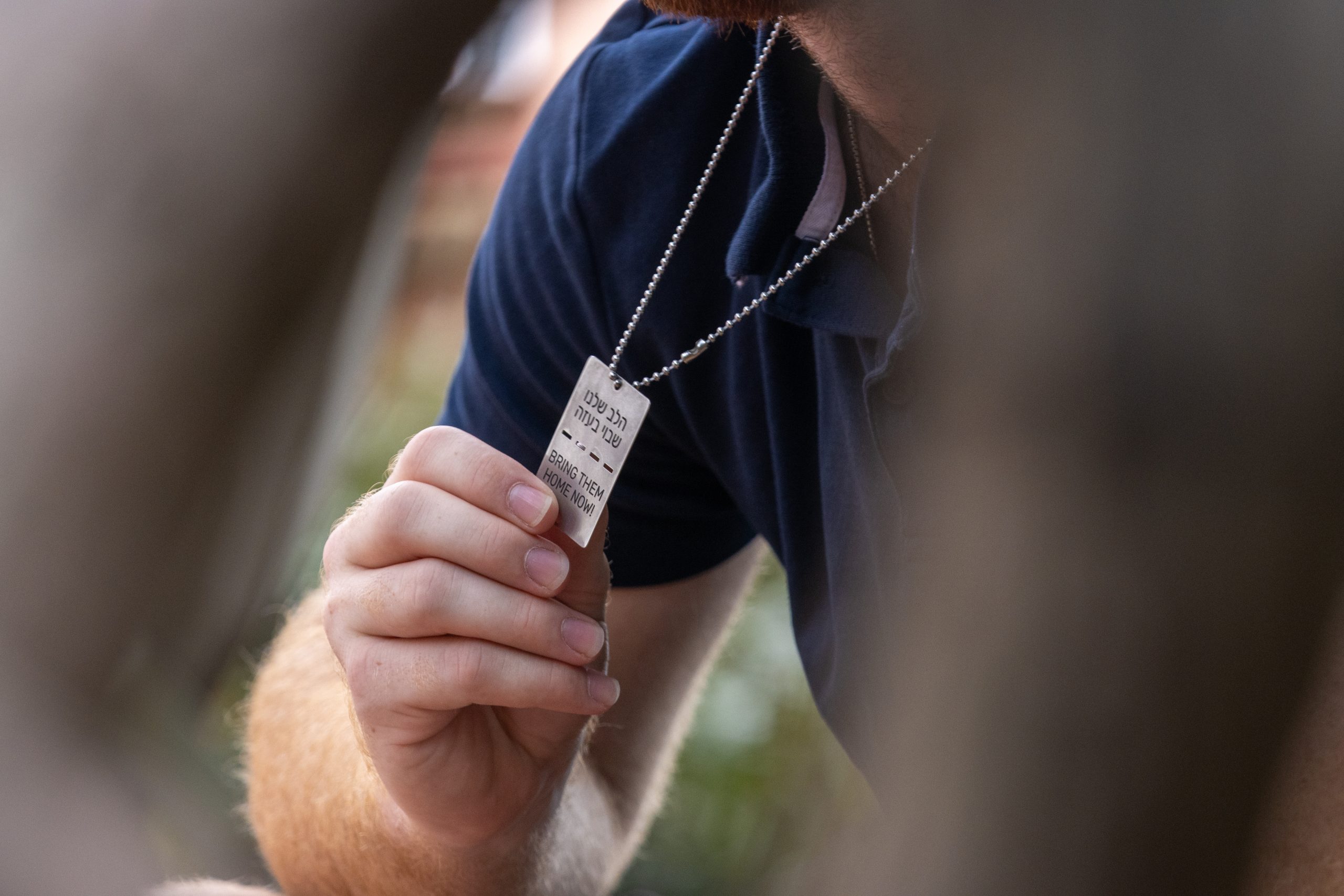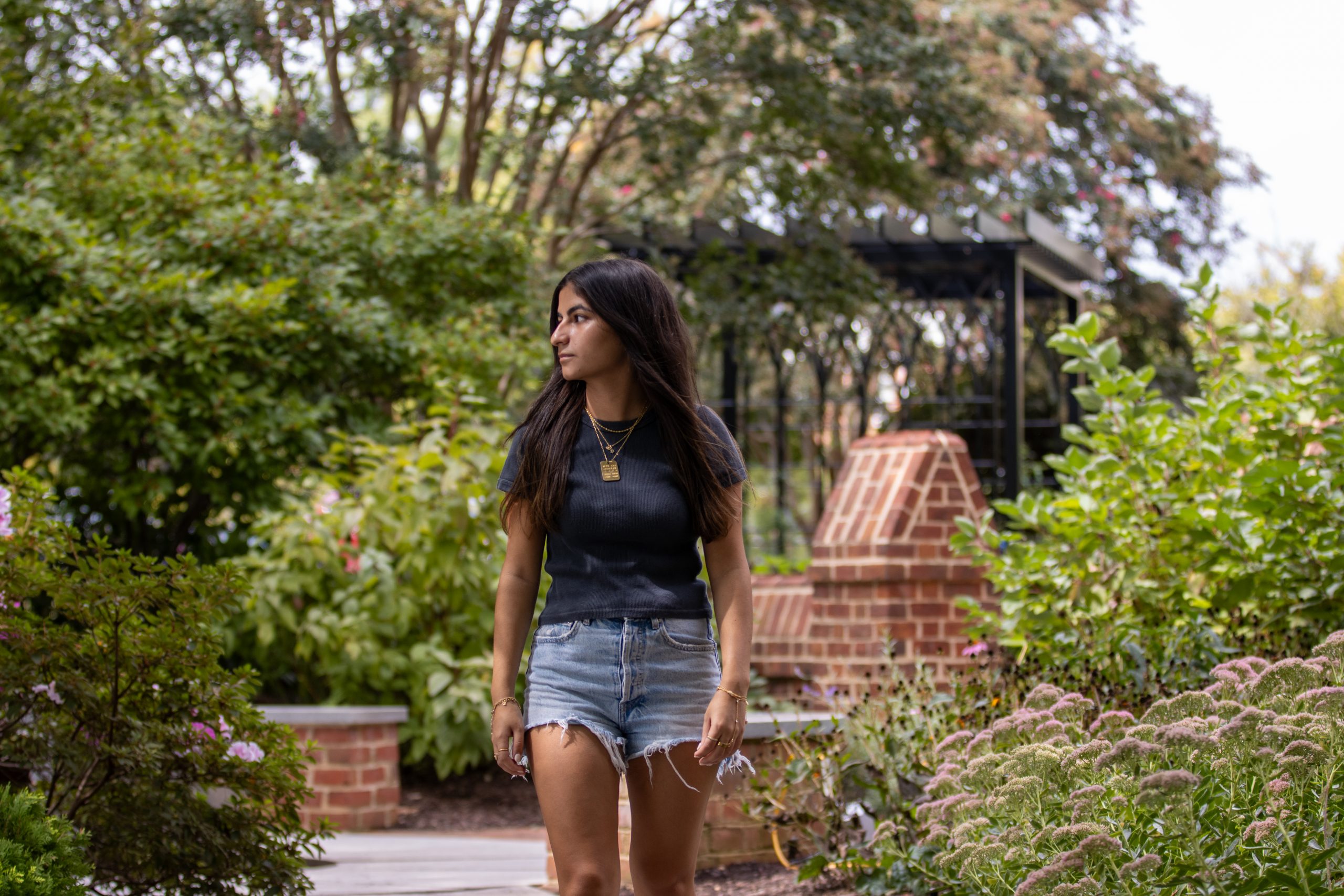By Akshaj Gaur and Natalie Weger
When Eytan Pomper reminisces about his carefree and adventurous cousin Hersh Goldberg-Polin, he recalls the day the pair attempted to drive a golf cart together.
The two boys — 10 or 12 years old at the time — were on a family vacation in the Midwestern United States. They sent the golf cart crashing.
Goldberg-Polin, a 23-year-old California native, was one of about 250 people Hamas took hostage on Oct. 7, 2023, in its attack on Israel that killed more than 1,200 people. For more than 340 days, Pomper has placed a new piece of tape on his chest each morning marking the number of days since his cousin and other hostages were kidnapped.
Nearly a year later, Pomper’s feelings of hope for Goldberg-Polin’s return turned into “shock [and] disbelief,” the senior kinesiology major at the University of Maryland said.
Israeli forces on Sept. 1 recovered Goldberg-Polin’s body and the bodies of five other hostages — Ori Danino, Carmel Gat, Alexander Lobanov, Almog Sarusi and Eden Yerushalmi — in a tunnel under Rafah, a city in southern Gaza, The Associated Press reported.
Hamas kidnapped Goldberg-Polin and four of the other killed hostages on Oct. 7 at the Tribe of Nova music festival in southern Israel, The Associated Press reported. Goldberg-Polin lost part of his arm in a grenade blast during the attack, according to The Associated Press.
[Maryland Hillel breaks ground on new, larger facility]
The news of the six killed hostages left many students at this university at a loss for words.
Junior mechanical engineering major Stone Schwartz didn’t know how to react when he received an alert that six hostages’ bodies were found on Sept. 1.
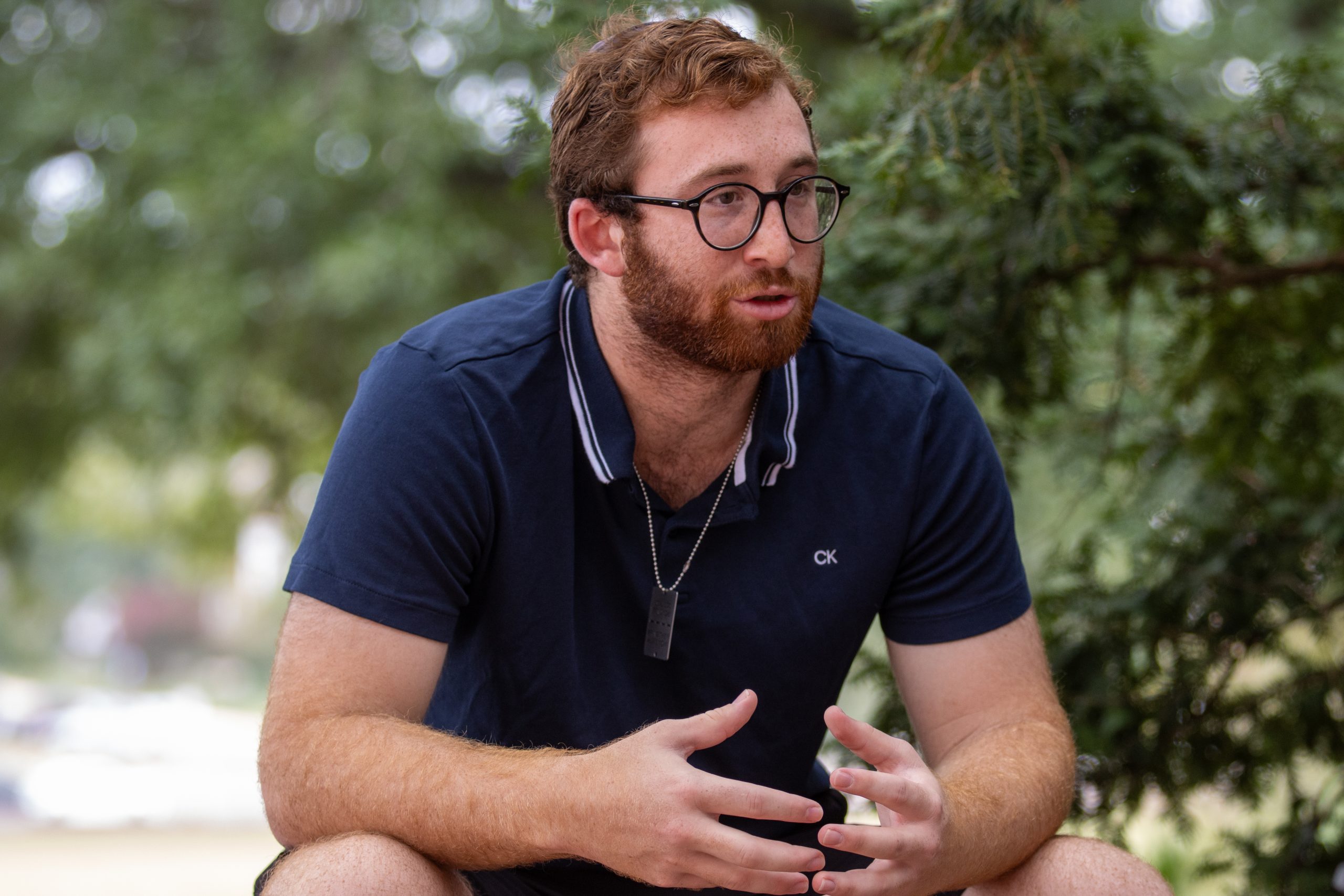
“You freeze when you hear news like that,” Schwartz, this university’s Jewish Student Union president, said. “There’s no right reaction.”
Schwartz grabbed his keys and ran to Pomper’s apartment. When Schwartz walked in, he found Pomper pacing in his room, he said. Schwartz told his longtime friend he would always be there for him and gave him a hug, he recalled.
Earlier that night, senior philosophy major Michael Lurie hosted several friends at his apartment, including Emma Steinhause. The gathering took place after the group attended a Maryland Hillel mini-golf event, Steinhause recalled.
“Everyone was in a really good mood,” Steinhause, this university’s Jewish Student Union’s vice president, said.
But later in the evening, Lurie’s roommate told the group Hersh’s body was found, Lurie said. The room went silent.
The hardest part of the night, Lurie said, was the helplessness he felt after hearing the news. He knew the six hostages’ stories well and had hope for their return.
“It was heartbreaking to know that they suffered for so long,” Lurie said. “It is even more heartbreaking to know that they were alive just days ago.”
The night took Lurie back to Oct. 7, 2023.
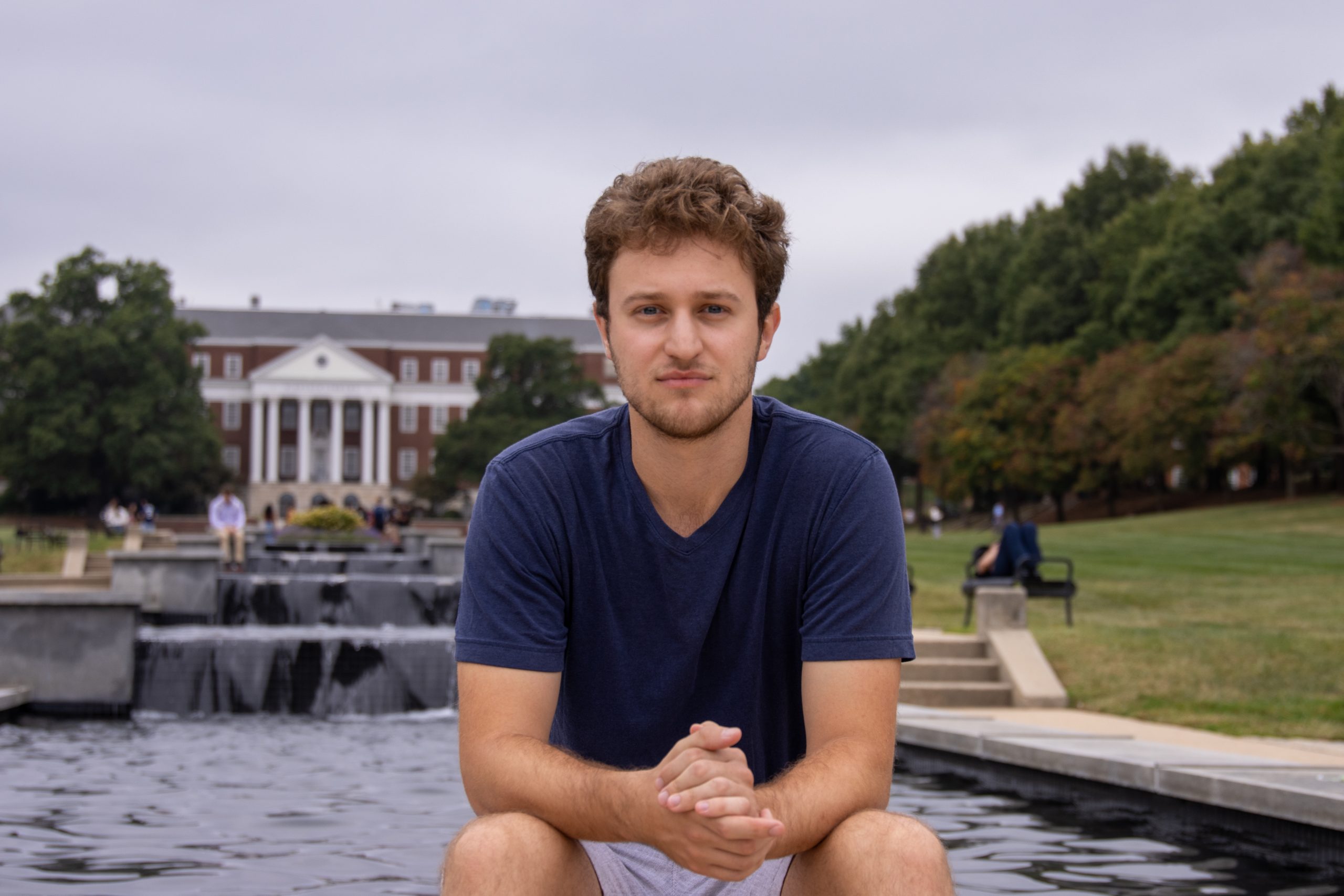
The day has held weight for many Jewish and Israeli students on campus since Hamas’ attack. Israel declared war on Hamas the next day and Israel’s military forces have killed more than 41,000 Palestinians since, The Associated Press reported Thursday.
Goldberg-Polin’s parents have amassed international attention by calling for the hostages’ release, The Associated Press reported. Over the past year, the family met with President Joe Biden and Pope Francis and addressed the United Nations to call for their son’s release, according to The Associated Press.
[USM limits Oct. 7 campus demonstrations to university-sponsored events after backlash]
Schwartz and his family have been closely tied to Goldberg-Polin’s family, Schwartz said.
His father and Jon Polin, Hersh’s father, attended the University of Wisconsin together, according to Schwartz. He said their fathers were best friends throughout middle school, high school and college.
When he was younger, Schwartz met Goldberg-Polin a few times when the pair attended camp together. Schwartz has been moved by watching Goldberg-Polin’s parents speak about their son on television.
“I know them. I’ve talked to them, eaten dinner with them,” Schwartz said. “It hits so much harder.”
In August, Jon Polin and Rachel Goldberg-Polin, Hersh’s mother, gave a keynote address at the 2024 Democratic National Convention against a backdrop of “bring them home” chants from thousands in the Chicago crowd.
“Bring them home now,” has become a rallying cry for many Jewish and Israeli community members since Oct. 7, according to Ella Elimelech, president of this university’s Terps for Israel organization.
Every day, Elimelech wears a silver necklace engraved with the words, “Bring them home now,” she said.
Whenever Elimelech fidgets with her necklace, she pauses to remember the hostages, she said. The sophomore information science major emphasized the importance of advocating for their “immediate release and unconditional return.”
This university’s Mishelanu — an Israeli culture club — held a vigil for the six victims at Maryland Hillel on Sept. 2, the day after Israeli forces recovered the hostages’ bodies.
Vigil attendees lit candles, sang religious songs and wrote messages to express their feelings, Elimelech said.
The challenging times Jewish and Israeli community members have endured over the past year have made it “hard to get out of bed” some days, Elimelech said. But coming together in times of distress has helped her cope with the trauma, she added.
For Steinhause, the Jewish community on campus has been important in allowing her to decompress during the tumultuous year, the junior operations management and business analytics major said.
The community’s “close-knit” nature has contributed to its resiliency during uncertain times, Steinhause said.
“We’ve always overcome our struggles and we are always going to,” Steinhause said.
